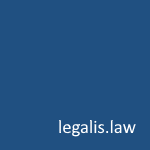Witness Statements
In the context of litigation in the United Kingdom, the stage of "witness statements" a part of the legal process where evidence is presented with a view to building a case. Witness statements are written documents prepared by witnesses, detailing their firsthand knowledge of the events, facts, and issues central to the litigation. These statements serve as an important source of evidence and are used to present witnesses' testimony to the court.
Key aspects of witness statements in UK litigation include:
- Purpose: Witness statements are a means of presenting the evidence of individuals who have direct knowledge of the facts and events relevant to the case. They provide a structured and formal account of a witness's testimony, helping to clarify and organize their evidence.
- Timing: In most cases, witness statements are exchanged between the parties before trial as part of the pre-trial preparation process. The court sets deadlines for the exchange of these statements to ensure that each side has adequate time to review and respond to the evidence.
- Content: Witness statements must be clear, concise, and focused on the issues at hand. They should include a witness's name, address, occupation, and a statement of truth, indicating that the contents are accurate to the best of their knowledge and belief.
- Oral Examination: While witness statements serve as the primary form of evidence presentation, witnesses may also be subject to cross-examination during the trial. The aim of cross-examination is to test the veracity and reliability of the statements.
- Expert Witnesses: In cases involving complex technical or scientific issues, expert witnesses may be called upon to provide specialized knowledge and opinions. Expert witness statements detail their qualifications, the facts upon which their opinions are based, and their expert conclusions.
- Legal Constraints: Witness statements must adhere to legal constraints, such as rules of evidence and privilege. They should not contain hearsay, which is generally inadmissible, and they should avoid disclosing privileged information.
- Witness Preparation: Witnesses may be prepared for the trial process, which includes reviewing their witness statements and being informed about the legal process and their role as a witness.
- Perjury: Witness statements must be accurate and truthful. Making a false statement in a witness statement can result in serious legal consequences, including perjury charges.
- Role in Trial: Witness statements are used during the trial to present evidence to the court. They serve as a basis for questioning witnesses, making legal arguments, and forming a complete understanding of the case.
- Importance: Witness statements play a vital role in shaping the outcome of a case. They allow the court to consider the firsthand accounts of individuals with direct knowledge of the facts, helping to establish the credibility of a party's case.
In summary, witness statements are an essential component of UK litigation, providing a structured and formal means of presenting the evidence of witnesses. They serve to clarify and organize testimony, enhance the efficiency of the trial process, and contribute to the fair and just resolution of legal disputes.
